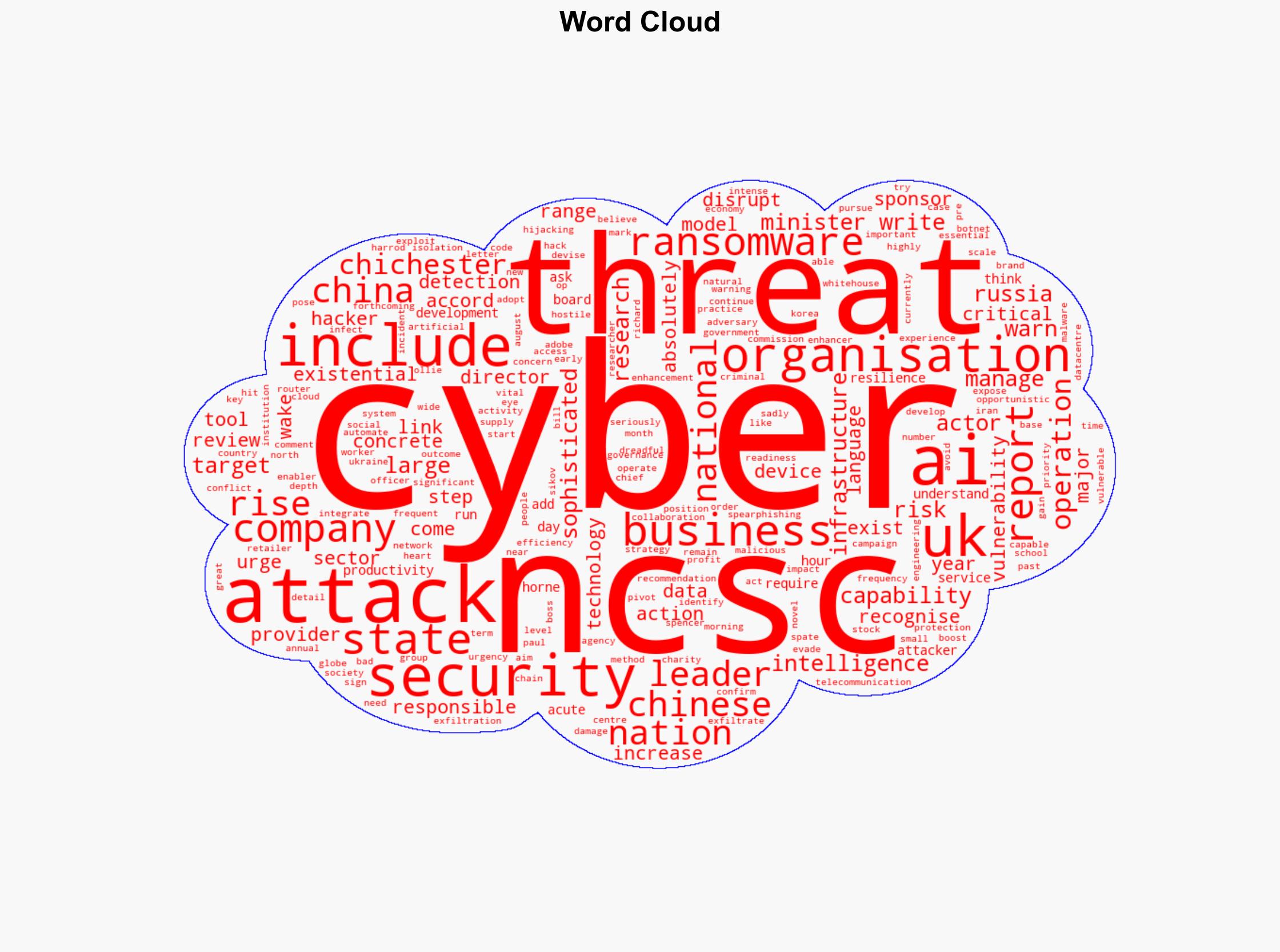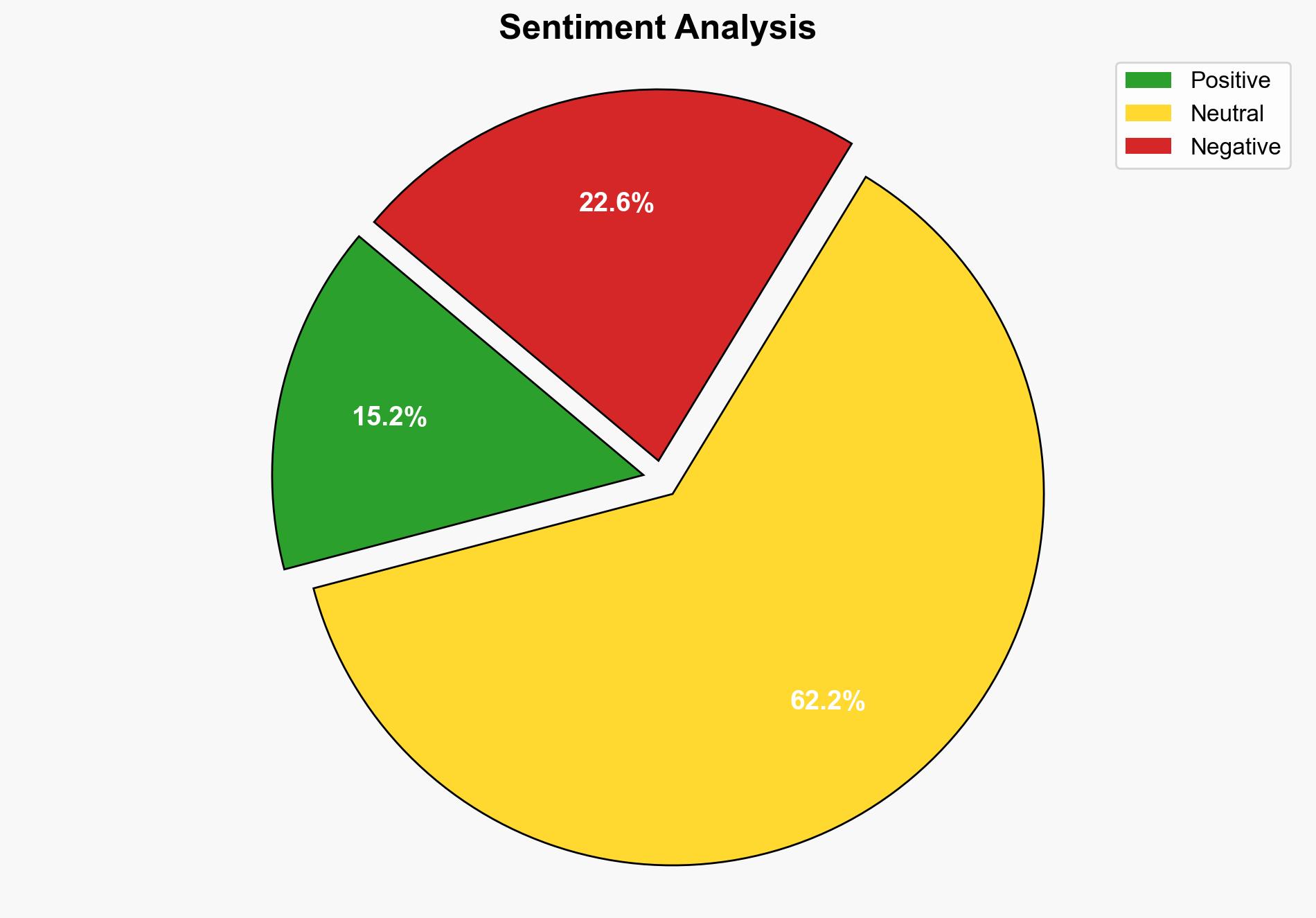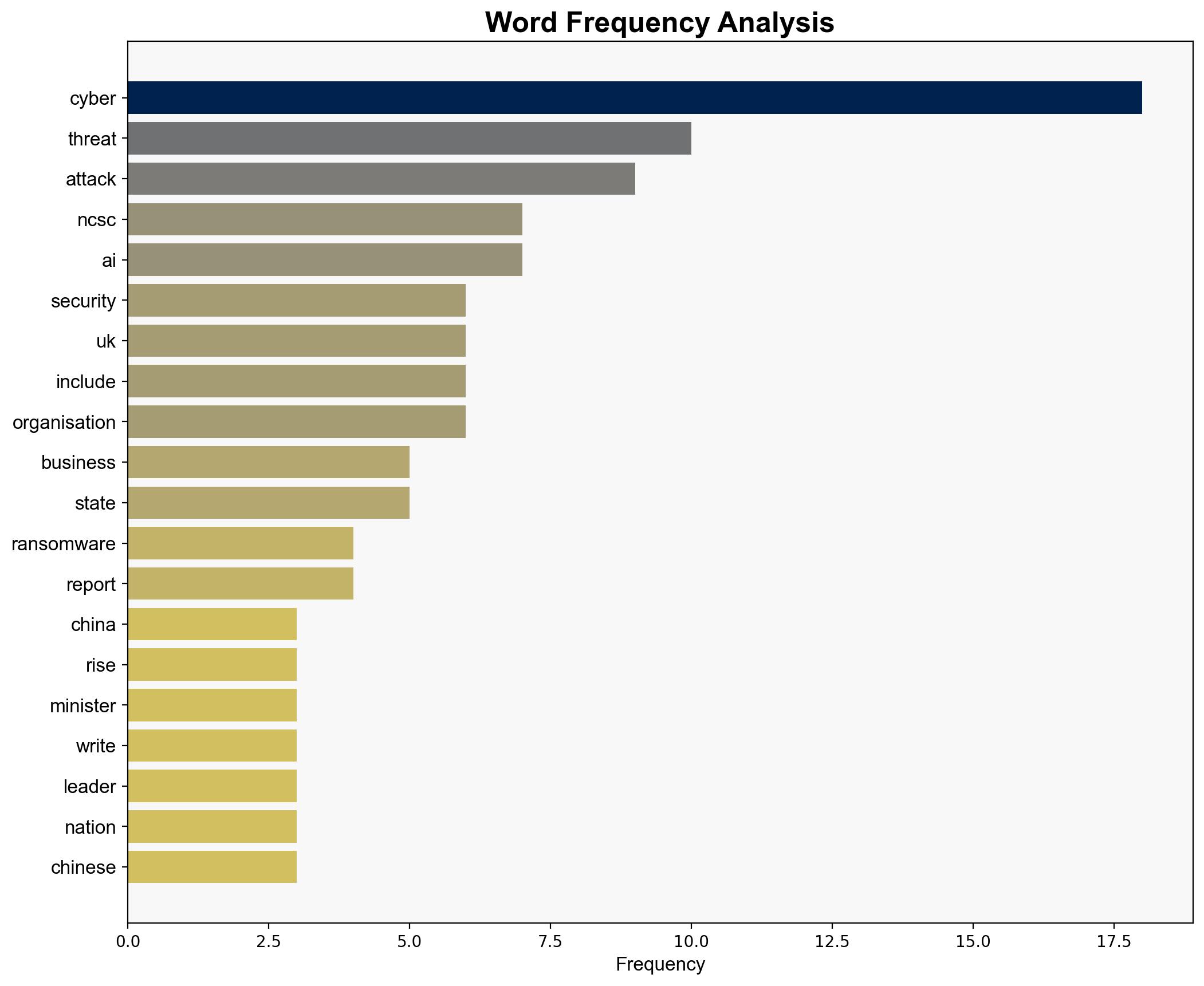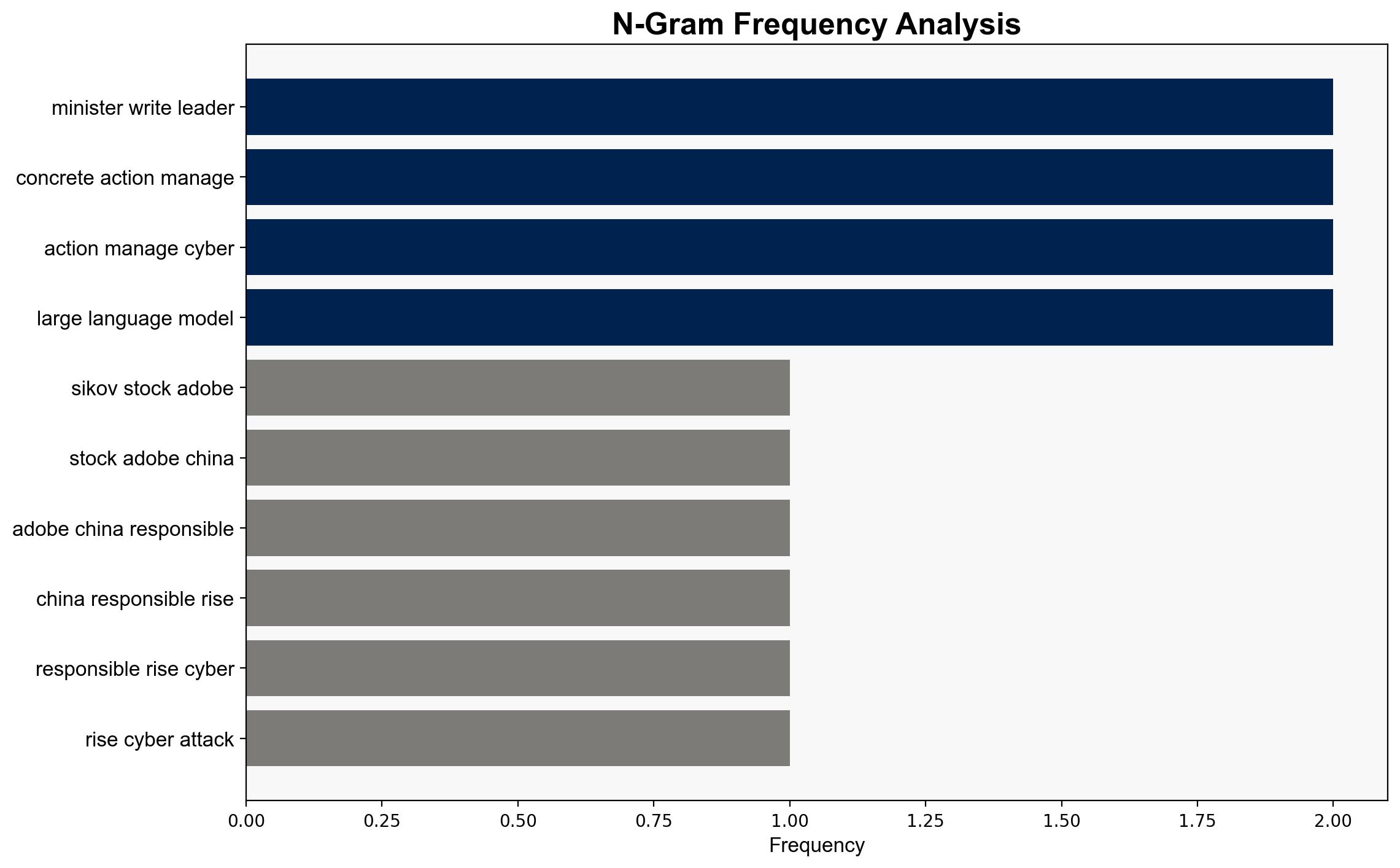China responsible for rising cyber attacks says NCSC – ComputerWeekly.com
Published on: 2025-10-15
Intelligence Report: China responsible for rising cyber attacks says NCSC – ComputerWeekly.com
1. BLUF (Bottom Line Up Front)
The most supported hypothesis is that China is actively involved in state-sponsored cyber attacks targeting the UK, as indicated by the National Cyber Security Centre (NCSC). This assessment is supported by the NCSC’s annual review and corroborated by recent intelligence on Chinese-linked hacking groups. Confidence level: Moderate. Recommended action includes enhancing cyber defense mechanisms and fostering international collaboration to counteract these threats.
2. Competing Hypotheses
1. **Hypothesis A**: China is directly responsible for the increase in cyber attacks against the UK, using state-sponsored groups to pursue national strategic objectives.
– **Supporting Evidence**: NCSC’s confirmation of Chinese-linked hacking groups, historical patterns of Chinese cyber activities, and the strategic alignment with China’s national objectives.
2. **Hypothesis B**: The rise in cyber attacks attributed to China is exaggerated, with other state or non-state actors exploiting the geopolitical climate to mask their activities.
– **Supporting Evidence**: The presence of other capable threat actors like Russia, Iran, and North Korea, and the potential for misattribution due to sophisticated obfuscation techniques.
Structured Analytic Technique: Analysis of Competing Hypotheses (ACH) was applied, weighing evidence for each hypothesis. Hypothesis A is better supported due to direct statements from the NCSC and alignment with known Chinese cyber strategies.
3. Key Assumptions and Red Flags
– **Assumptions**:
– The NCSC’s intelligence is accurate and unbiased.
– Chinese cyber capabilities are sufficiently advanced to evade detection.
– **Red Flags**:
– Potential bias in attributing cyber attacks to China due to geopolitical tensions.
– Lack of detailed evidence publicly available to substantiate claims.
– **Blind Spots**:
– Possible underestimation of other state actors’ involvement.
– Insufficient exploration of non-state actors’ roles in cyber attacks.
4. Implications and Strategic Risks
– **Patterns**: Increasing sophistication and frequency of cyber attacks targeting critical infrastructure.
– **Cascading Threats**: Potential for significant economic disruption and loss of trust in digital systems.
– **Escalation Scenarios**: Retaliatory cyber actions could lead to broader geopolitical tensions.
– **Dimensions**: Economic impact on businesses, psychological effects on public trust, and geopolitical ramifications in international relations.
5. Recommendations and Outlook
- Enhance cybersecurity infrastructure and incident response capabilities.
- Strengthen international cooperation and intelligence sharing to counter cyber threats.
- Scenario Projections:
- Best Case: Successful deterrence and reduction in cyber attacks through international collaboration.
- Worst Case: Escalation of cyber warfare leading to significant economic and infrastructural damage.
- Most Likely: Continued cyber threats requiring sustained vigilance and adaptive defense strategies.
6. Key Individuals and Entities
– Paul Chichester
– Ollie Whitehouse
– Richard Horne
7. Thematic Tags
national security threats, cybersecurity, counter-terrorism, regional focus




